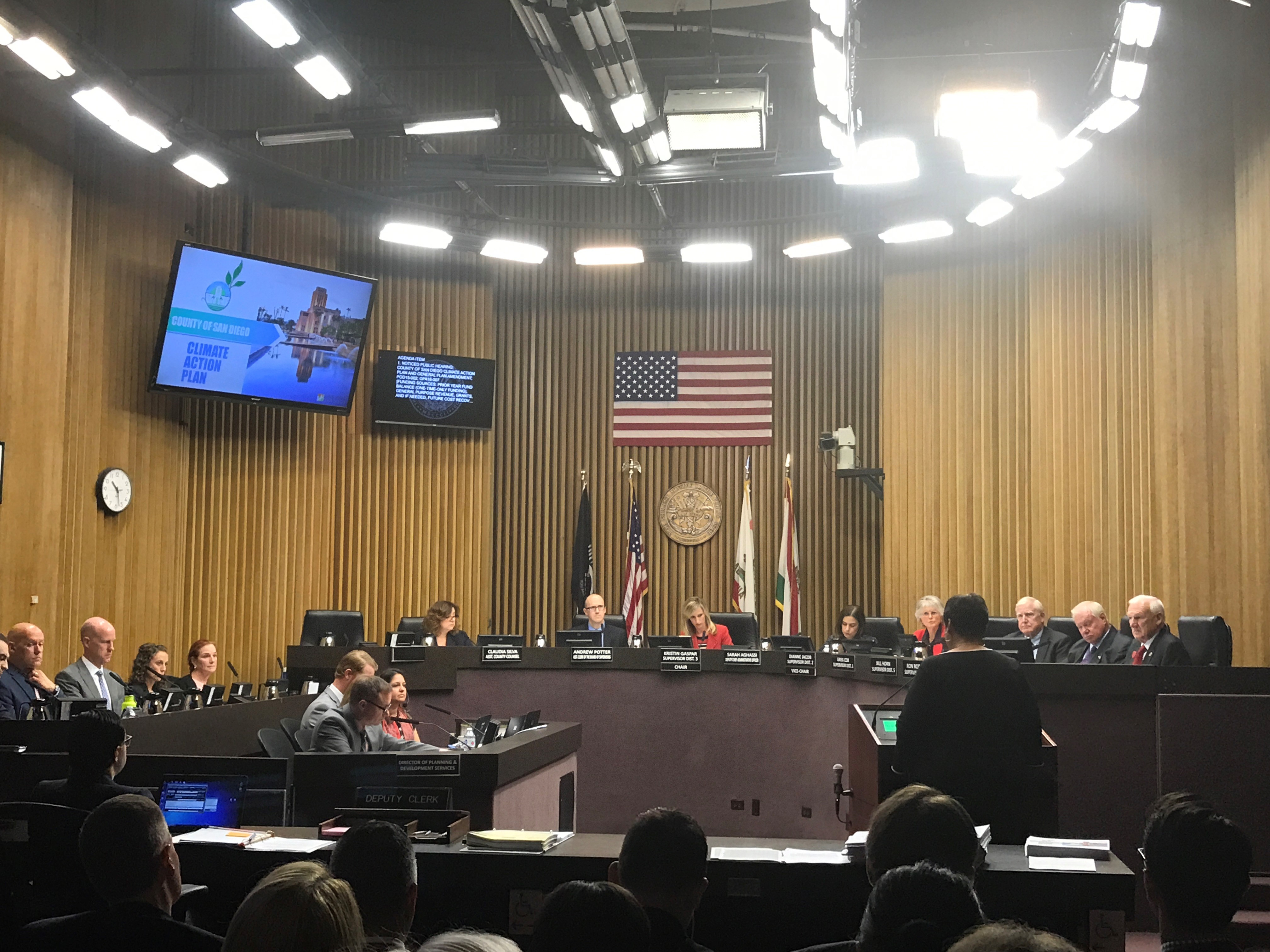Policymakers often look to real estate transactions as a seemingly convenient place to impose new requirements for household upgrades, inspections and remediation of a variety of concerns. Although well-intended, these actions can create a number of issues for property owners, would-be homebuyers and the REALTORS® assisting in the transaction. Fortunately, the Greater San Diego Association of REALTORS® Government Affairs Committee members led the way in preventing what could have been a costly point of sale mandate for homeowners in San Diego County.
Recently, at their February 14 meeting, the County of San Diego Board of Supervisors approved the Supplemental Environmental Impact Report and General Plan Amendment to the County Climate Action Plan. In their initial version of the plan circulated in 2017, County staff included a point of sale requirement for energy audits. Specifically, as indicated in the County of San Diego’s Climate Action Plan Draft report, the County would require energy audits and accompanying disclosures to be provided by real estate agents prior to the sale of a home or building:
In addition, property sellers will be required to provide a Real Estate Building Energy Efficiency Disclosure to prospective buyers…The County will make the disclosure form available to real estate agents, who will then be required to submit completed forms to the County for tracking. (County of San Diego, 2017, p. 46)
To be clear, the Greater San Diego Association of REALTORS® (SDAR) shares in the County’s commitment to establish a sustainable and vibrant region. We stand ready to support plans that will accomplish our environmental goals without placing unnecessary and avoidable burdens on our current and future property owners. In this situation, realizing the impact this issue could have on delaying or outright preventing real estate transactions, SDAR’s Government Affairs Committee was quick to alert County staff of their concern.
For County staff, what was initially assumed to be a relatively simple and low-cost provision (audits estimated between $300-$500), elevated to a significantly more complex mandate on homeowners that could cost several thousand dollars due to delays and a variety of complications in the transaction process. What’s more, several unknowns, including whether a sufficient number of energy auditors were available to respond in a timely manner gave REALTORS® further cause for concern. Of note, the group pointed out the following issues identified and shared by the California Association of REALTORS® as it relates to the point of sale:
- Not Environmentally Friendly - Ironically, relying on the point-sale to implement green policies is not friendly to the environment. That is because the point-of-sale is an inefficient trigger mechanism for implementing any type of policy, green or otherwise. While many homes do change ownership after only a few years, many homes remain with the same owner for years and even decades. Furthermore, in many communities, a number of homes were built before 1978 when the State Energy Efficiency Building Standards were implemented. These homes may be the worst offenders in terms of energy use and pollution. Under a point-of-sale scenario, these homes will continue to pollute for as long as they remain with the same owner.
- Unfair - To place the burden of the whole community on homebuyers and sellers is inequitable. Why should only a segment of the population be required to shoulder the burden for something that impacts the entire community?
- Adds complications to sales transactions - Escrow is a time sensitive process. Another step only delays the process and adds more stress to the homebuyer and seller.
- Hurts Affordability - The cost of retrofitting or an inspection can cause the home sale prices to increase drastically, leaving the potential homebuyer with an added expense, and possibly, unable to purchase a home.
- Makes REALTORS® green building police - Various retrofitting mandates require the agent or broker’s signature for the completion certificate to be validated, this forces the real estate professional to act as an expert in a field in which they are not trained.
- Causes the Real Estate Professional to Do the County’s Job - An obligation by a county government should be enforced by that municipality, not an individual in the private sector.
- Creates Unnecessary Legal Liabilities on the Real Estate Professional - Usually, despite all factors, the real estate professional is the one that is forced to get directly involved in a lawsuit. Some point of sale mandates do not clearly state that the REALTOR® is not responsible for the ordinance. The liability is unfair to agents and brokers.
Ultimately, after a few conversations between County staff and SDAR’s real estate professionals, the point of sale mandate was removed from the draft plan. Carla Farley, SDAR’s 2018 Vice President of the Board of Directors, addressed the County Board of Supervisors during the February 14 hearing to reinforce our concern about point of sale mandates and to share our appreciation for County staff who worked with us to remove these provisions and protect San Diego's home buyers/sellers.







